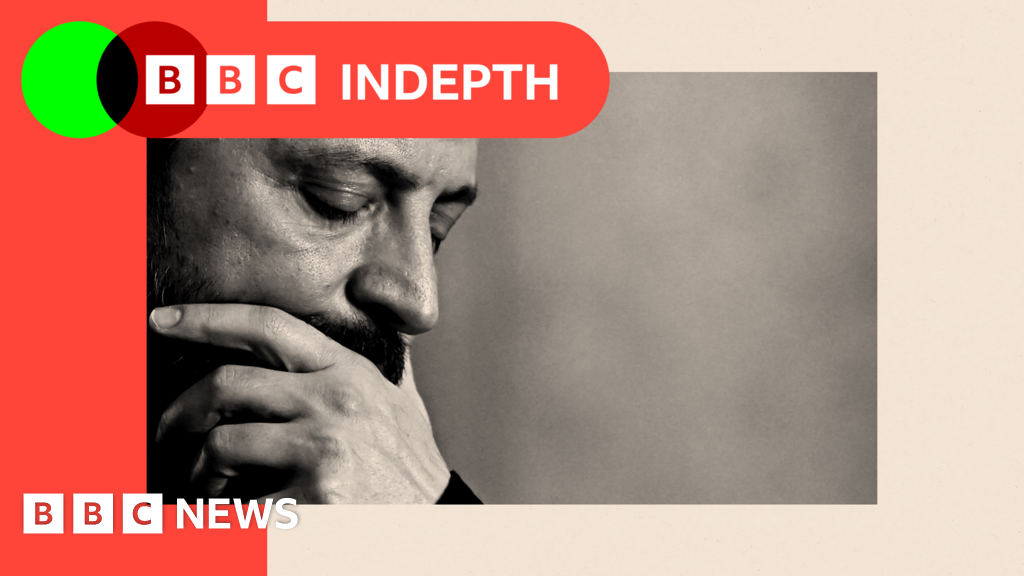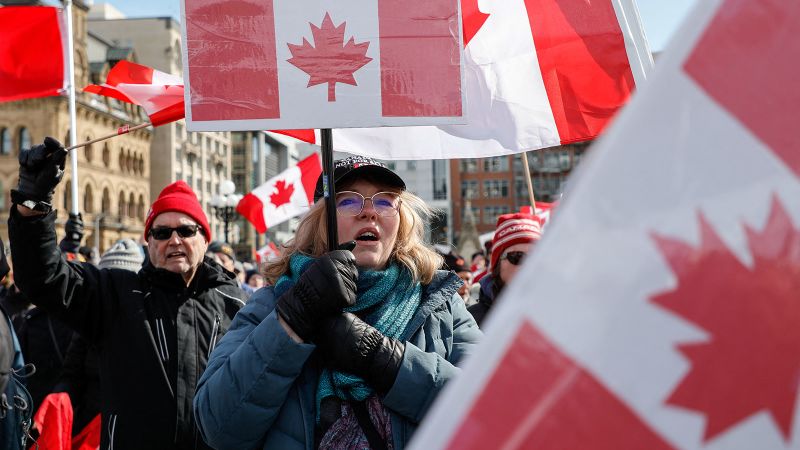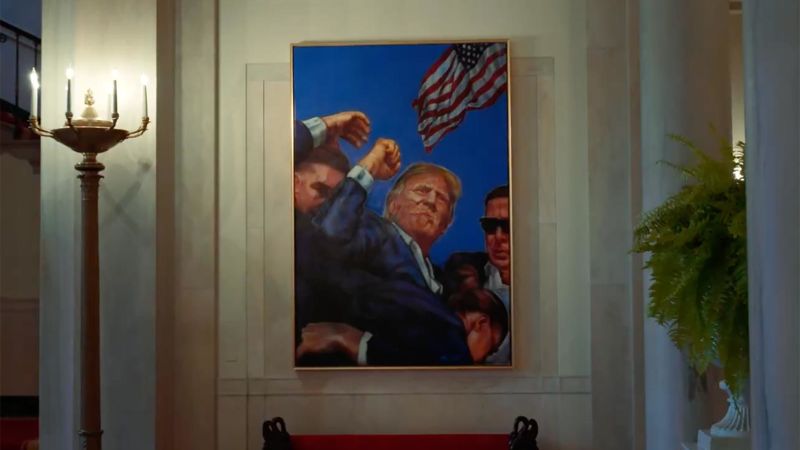Tensions Erupt: Erdogan's Crackdown Sparks Nationwide Protests
Politics
2025-03-21 21:54:47Content
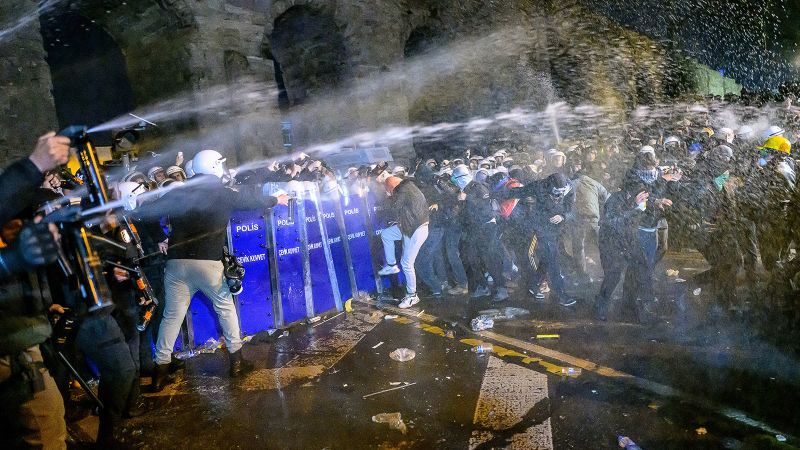
Turkey Erupts in Protests as Tensions Boil Over Opposition Leader's Potential Imprisonment
Widespread demonstrations swept across multiple Turkish cities for a second consecutive day, with passionate opposition supporters clashing intensely with state security forces. The protests, fueled by growing public anger, demand the immediate release of Istanbul's popular Mayor Ekrem Imamoglu, who faces potential imprisonment.
Dramatic scenes unfolded as demonstrators took to the streets, expressing their frustration through heated confrontations with police. Social media and Turkish media outlets have been documenting the escalating tensions, highlighting the deep political divisions within the country.
Mayor Imamoglu, a rising star in Turkish opposition politics, has become a symbol of resistance against the current government's policies. His potential imprisonment has struck a nerve with many citizens who view the legal proceedings as politically motivated.
The protests underscore the growing political polarization in Turkey, with citizens increasingly willing to challenge what they perceive as unjust governmental actions. As the situation continues to develop, the world watches closely to see how these tensions will unfold.
Political Tensions Explode: Turkey's Democracy on the Brink of Chaos
In the heart of Turkey, a political powder keg is threatening to ignite a nationwide crisis, as tensions between opposition forces and government security apparatus reach a boiling point. The streets of multiple urban centers have transformed into battlegrounds of democratic resistance, with citizens challenging the established political order through passionate and increasingly volatile demonstrations.Unrest Threatens to Unravel Turkey's Political Fabric
The Catalyst of Resistance: Ekrem Imamoglu's Detention
The arrest of Istanbul's charismatic mayor, Ekrem Imamoglu, has become the spark that has set Turkey's political landscape ablaze. His detention represents more than a simple legal action; it symbolizes a broader struggle between democratic aspirations and authoritarian control. Imamoglu, known for his progressive stance and challenge to the current government's narrative, has become a lightning rod for widespread public discontent. Protesters view his imprisonment as a direct assault on democratic principles, seeing it as a calculated move to suppress opposition voices. The streets have become a canvas of collective frustration, with citizens from diverse backgrounds uniting under a common banner of resistance. Young activists, seasoned political veterans, and ordinary citizens have converged to challenge what they perceive as systemic oppression.Urban Battlegrounds: The Anatomy of Civil Unrest
The demonstrations have erupted across multiple metropolitan centers, transforming urban landscapes into complex theaters of political confrontation. Security forces, equipped with riot gear and tactical equipment, have been deployed to suppress the growing tide of public dissent. Water cannons, tear gas, and aggressive crowd control tactics have become standard responses to the swelling protests. Each city tells a different story of resistance. In Istanbul, the crowds are particularly dense, reflecting the mayor's hometown's deep emotional connection to the political struggle. Ankara sees more structured, organized protests, while smaller cities display more spontaneous and localized expressions of defiance. The geographic spread of these demonstrations underscores the nationwide nature of the discontent.International Implications and Diplomatic Tensions
The ongoing unrest in Turkey is not merely a domestic issue but carries significant international ramifications. Western diplomatic circles are closely monitoring the situation, with concerns about democratic backsliding and potential human rights violations. International media outlets have been broadcasting images of confrontations, bringing global attention to Turkey's internal political dynamics. European Union representatives have begun discussions about potential diplomatic interventions, while human rights organizations are documenting the escalating tensions. The global community watches with a mixture of concern and anticipation, understanding that Turkey's political stability has broader geopolitical consequences.The Role of Social Media and Digital Resistance
Digital platforms have emerged as crucial battlegrounds in this political conflict. Protesters are using social media to coordinate demonstrations, share real-time updates, and broadcast their experiences to a global audience. Hashtags documenting the protests have been trending, creating unprecedented levels of digital solidarity. Young tech-savvy activists are leveraging platforms like Twitter and Telegram to organize rapid response networks, circumventing traditional media restrictions. This digital dimension adds complexity to the protest movement, making it more resilient and harder for authorities to control the narrative.Economic and Social Consequences of Prolonged Unrest
The ongoing political turmoil carries profound economic implications for Turkey. Foreign investors are growing increasingly nervous, with potential capital flight and reduced economic confidence. The Turkish lira could experience further volatility, and international business partnerships might be reconsidered in light of the unstable political environment. Social fabric is simultaneously being tested, with communities experiencing unprecedented levels of polarization. Families, workplaces, and social networks are being strained by divergent political perspectives, creating long-lasting societal fractures that extend beyond the immediate political confrontation.RELATED NEWS
Politics

Battling Billionaires: Sanders and AOC Bring Progressive Firepower to Denver
2025-03-14 21:30:00
Politics
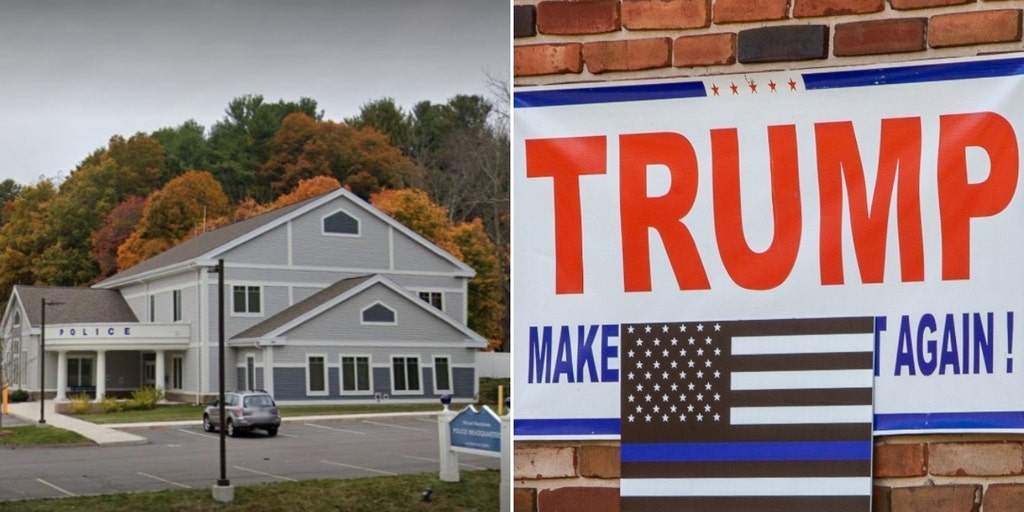
Local Leadership Shakeup: Massachusetts Town Administrator Ousted After Controversial Trump Flag Incident
2025-02-26 11:28:59
Politics

Hollywood Veteran Jane Fonda Ignites Stage with Powerful Political Plea at SAG Awards
2025-02-24 03:12:03

